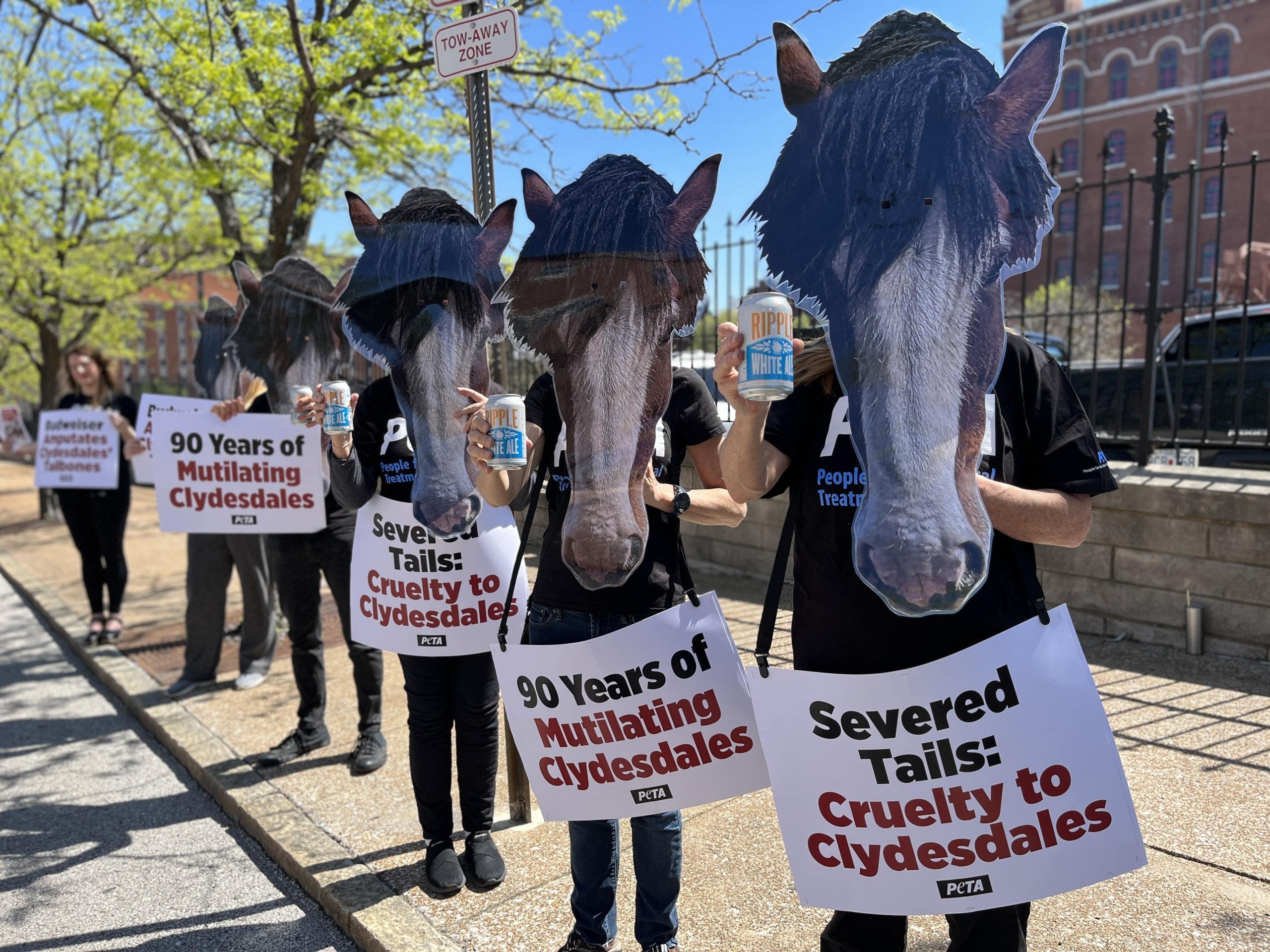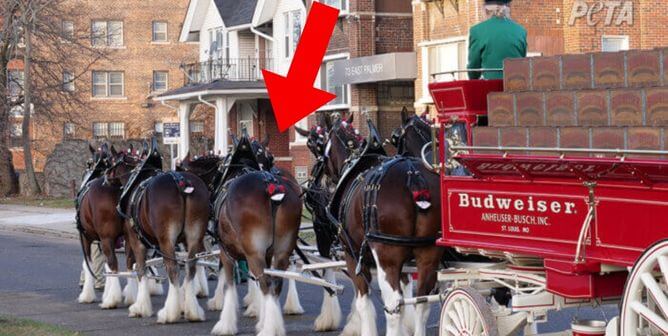PETA Victory! Budweiser Agrees to Stop Amputating Clydesdales’ Tailbones
Raise a glass to victory! Following a massive campaign in which thousands of PETA supporters took action, Anheuser-Busch InBev—the parent company of iconic American beer brand Budweiser—announced that it has agreed to stop cutting the tailbones off its Clydesdale horses.
PETA’s staff are cracking open some cold ones today to celebrate Budweiser’s decision to cut out the cruelty by agreeing to stop severing horses’ tailbones. This victory comes after dozens of protests, nationwide ad campaigns, and more than 121,000 pleas from concerned consumers. It sends a message to other companies that animal abuse doesn’t sell.
What Used to Happen to Budweiser Clydesdales Before the PETA Campaign?
A PETA video exposé detailed how Budweiser used to painfully amputate the horses’ tailbones, either with a scalpel or with a tight band that stopped the blood supply to the tail, causing it to die and fall off.
PETA video footage also showed agitated Budweiser Clydesdales uselessly flicking the remnants of their amputated tails incessantly as they tried in vain to brush away biting, disease-spreading insects under the hot sun.
Both the American Veterinary Medical Association and the American Association of Equine Practitioners condemn cosmetic tailbone amputation. The practice is prohibited in 10 states and several countries, and equine veterinarians have gone on record calling it “despicable,” “disgraceful,” and “abusive.”
With this kind decision for Clydesdales, the self-proclaimed “King of Beers” is back at the top of the heap. To those who took action for horses to help make this victory possible, PETA says, “Cheers!”
Want to Help Other Horses?
Right now, countless horses across the U.S. are suffering. These majestic animals are pushed to their physical limits and made to run at breakneck speeds in races, they’re forced to pull heavy carriages full of passengers through busy streets in extreme weather conditions, and thousands are shipped to foreign countries to be slaughtered for food every year.




